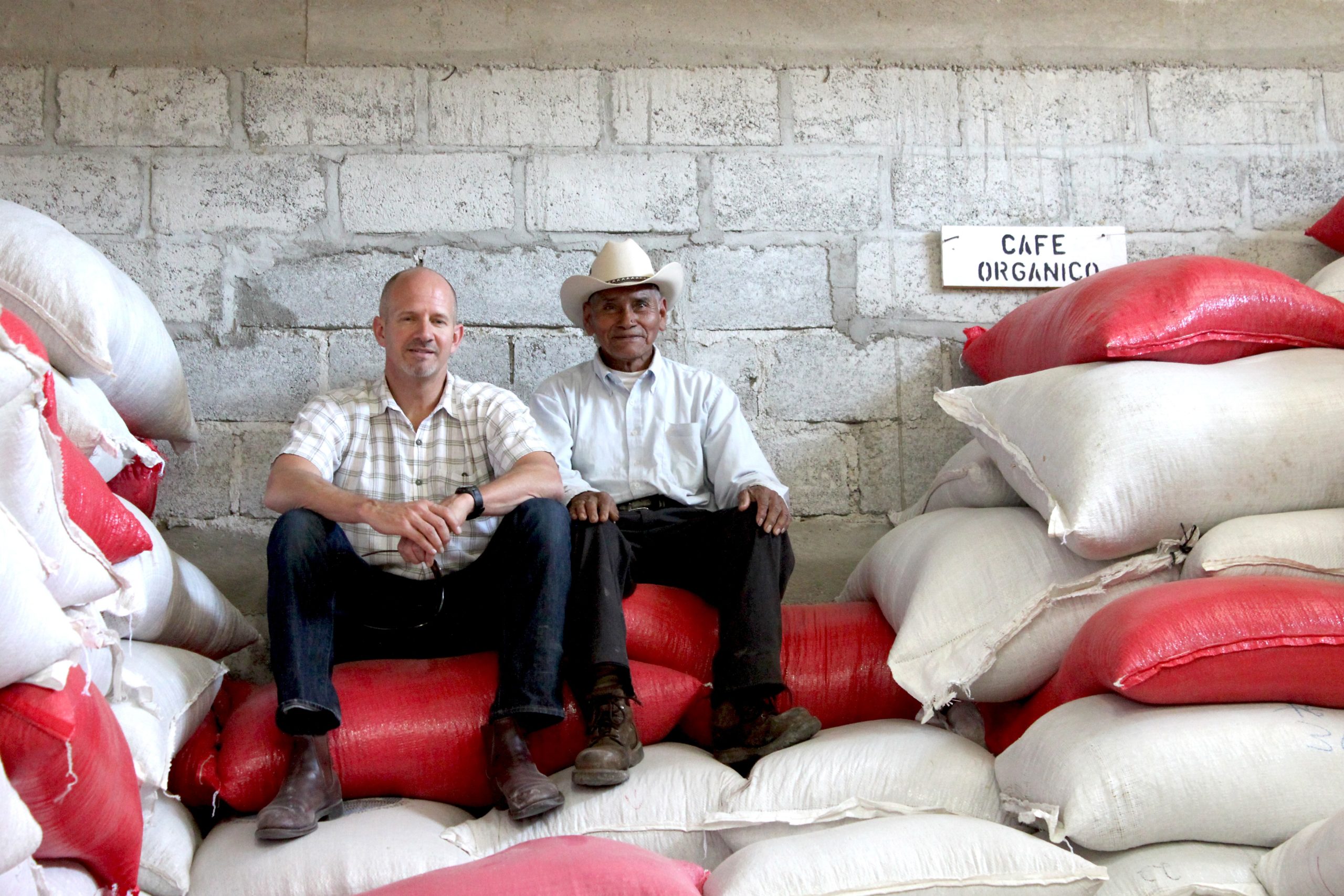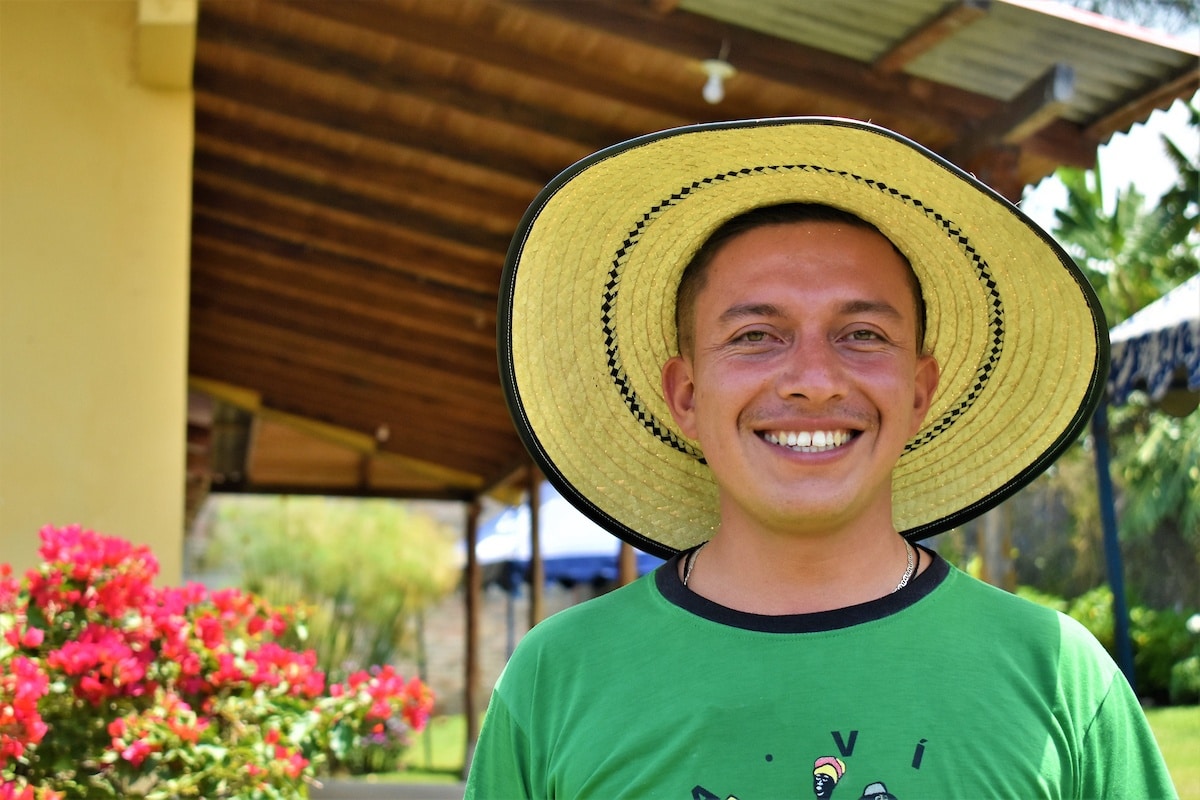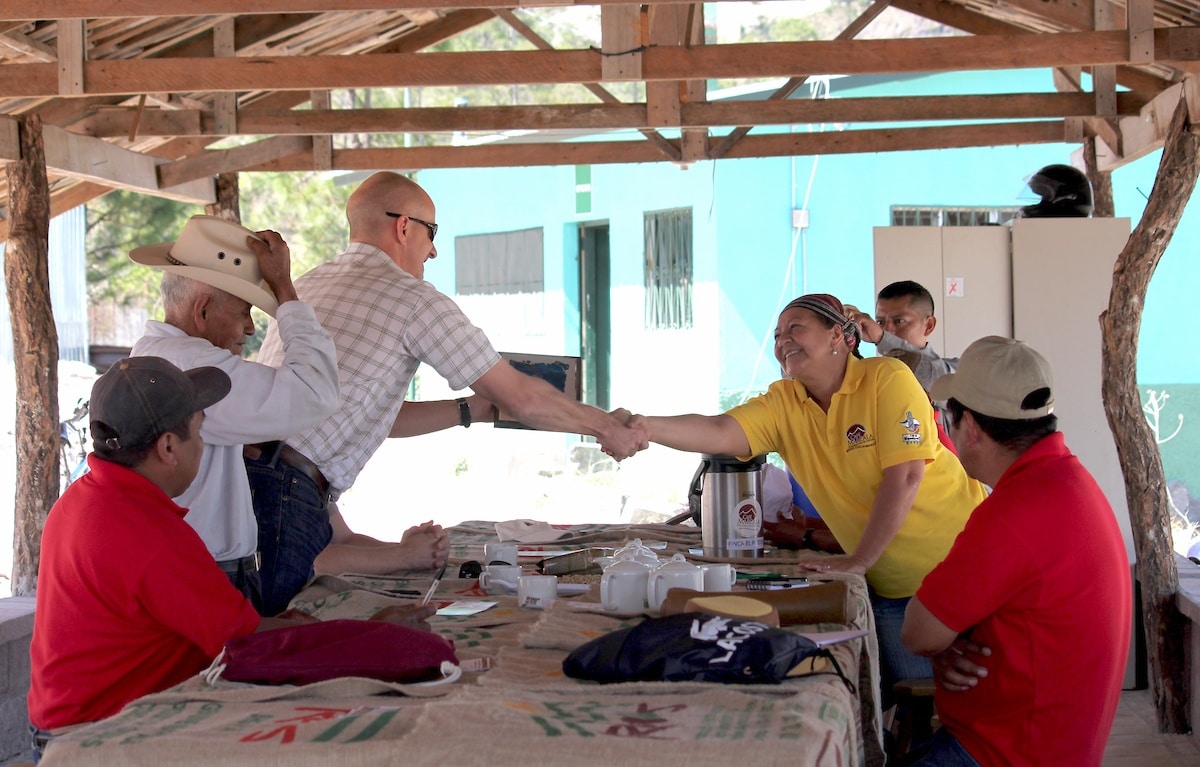
Alongside several pioneering organizations in development finance, the Overseas Private Investment Corporation (OPIC) recently testified in front of the Senate Foreign Relations Committee in support of a market-based approach to foreign aid. Root Capital is proud to partner with OPIC to connect smallholder farmers to global markets. Our CEO and founder Willy Foote submitted the following written testimony in support of OPIC’s work to place capital where it’s needed most.
Chairman Corker, Ranking Member Menendez, Members of the Committee, thank you for the opportunity to share a brief overview of the support that the Overseas Private Investment Corporation (OPIC) has provided to Root Capital, and the broad impact of that support.
Unlike many traditional foreign aid models, OPIC takes a market-based approach, mobilizing private sector capital for public good. In 1969, 38 years before the term “impact investing” was coined at an event hosted by the Rockefeller Foundation, U.S. President Richard Nixon saw the writing on the wall when it comes to using market-based mechanisms to alleviate poverty.
In a speech he delivered that year, Nixon argued for a new focus to the country’s foreign assistance efforts. “We must enlist the energies of private enterprise in the cause of economic development,” he said. To do so, he advocated for the creation of OPIC. This new government agency would utilize a “businesslike management” approach to mobilize and guide investment capital to higher-risk areas, thus contributing to the economic and social progress of developing nations.
And so OPIC was established in 1971 and continues nearly 50 years later to serve as the United States’ development finance institution, pushing the frontier of private-sector-led approaches to development and helping American businesses of all sizes expand to emerging markets. It does this by providing direct loans and guarantees, as well as risk insurance—especially in situations where commercial financial institutions are reluctant or unable to lend. In other words, OPIC facilitates investments that likely wouldn’t happen otherwise.
Willy with José Dominguez, producer-member of Honduran cooperative RAOS, on top of a mountain of coffee going to Keurig/Green Mountain.
My organization, Root Capital, has worked with OPIC for the past eight years in our efforts to connect smallholder farmers in Latin America, Southeast Asia, and Africa to global markets. Since we first partnered with OPIC in 2010, I’ve discovered the astonishing focus, precision, and fiscal discipline of this low-profile but highly efficient government agency. My organization was just 10 years old and managing a $40 million loan portfolio when OPIC provided its first loan facility to us. Over the following years, as our lending activities expanded, OPIC continued to provide us with critical scale capital—most recently a long-term financing facility of $50 million—which has enabled us to raise additional funds and double the size of our lending portfolio.
Together, we have been able to direct that funding to hundreds of high-impact food and agricultural businesses. From farmer cooperatives to food processors, these enterprises collectively source from 1.2 million smallholder farmers in more than 25 countries, and are trusted suppliers to some of the world’s largest companies, such as Starbucks, General Mills, Keurig Green Mountain and Whole Foods Market. They produce many of the products—high-quality coffee, chocolate, or quinoa—that you purchase from your local grocery store.
Cristhian Camilo Cruz Barbosa, employee of Colombian coffee cooperative Federación de los Campesinos de Cauca.
But the benefits of OPIC support go much deeper. With OPIC as a financial partner, Root Capital has provided loans to some of the world’s most transformative agricultural companies, many operating in conflict or post-conflict countries. In these regions, agricultural businesses are a vital scaffold. As farmers return to their land after war, they find homes burned, tools missing, and livestock killed. Agricultural businesses can provide essential resources for recovery—among them, tools, seeds, credit, jobs, and access to high-value markets.
In the fragile period after violence, this is critical. Economic development makes peace possible, while economic insecurity drives further conflict. Yet most investors are reluctant to put money into unstable communities. OPIC helps bridge this gap.
For instance, in the lush, rugged state of Cauca in southwest Colombia, businesses have successfully utilized Root Capital financing to produce, process, and export high-quality coffee despite operating in the crossfire of violence for decades. By attracting a stable of new buyers interested in premium-quality specialty coffee, they provide alternative income streams that liberate many from the nefarious grip of guns, guerrillas, and the drug economy. These businesses are helping secure prosperity in the rural countryside, even as the recent peace agreement between the government and FARC remains fragile. Indeed, Juan Esteban Orduz, president of the Colombian Coffee Federation, believes that “when coffee moves in, conflict moves out.”
Employees of Rwandan coffee cooperative Musasa prepare coffee to be dried.
Take Rwanda as another example. In the aftermath of the 1994 genocide, devastated communities in the country’s coffee-growing regions struggled to rebuild. The conflict left almost a million dead and many more displaced. Thousands of smallholder farmers returned from refugee camps to find their farms in ruins. The majority of rural families were left with little income, unable to afford even basic necessities like clothing, medicine, or housing.
But smallholder coffee farmers banded together to help their community recover and prosper, forming Musasa Coffee Cooperative. In 2005, based on Musasa’s contracts with leading specialty coffee buyers, Root Capital loaned the cooperative $90,000 to purchase raw beans from its members. When the processed beans shipped, a portion of the proceeds paid off the loan. Since then, Root Capital has provided Musasa with more than $1 million in financing. As a result, Musasa has grown from 300 to more than 1,800 members—among them many women who were widowed by the 1994 genocide.
Willy seals a deal with Melba Sosa of Cooperativa RAOS.
With OPIC’s support, Root Capital is able to meet the financing needs of over 200 businesses like Musasa each year. When the businesses we support grow, they become engines of positive social and environmental impact, transforming rural communities. They create jobs, preserve ecosystems, empower women, and provide opportunities for young people to thrive. With continued growth, they invest profits in community infrastructure, clean water, health care, nutritious food, and education.
This is precisely why the benefits of OPIC’s investments, in the long run, are far more than monetary. For nearly five decades, the independent agency has received bipartisan support and pursued its mission on a self-sustaining basis at no net cost to American taxpayers. It achieves this while supporting American enterprises, advancing the country’s foreign policy objectives, and providing steady financial returns.
Institutions such as OPIC play a pivotal role in terms of capital, risk mitigation, and match-making between investors, those who have innovative solutions, and the places that need the most help. I am proud and grateful for Root Capital’s partnership with OPIC, which enables us to place capital where it’s needed most—in the hardest-to-serve businesses, at the end of the dirt road.
Photos © Bryan Clifton and Root Capital



![[WOMEN] _MG_0185](https://roots.marketingpod.dev/wp-content/uploads/2019/12/WOMEN-_MG_0185-1.jpg)
